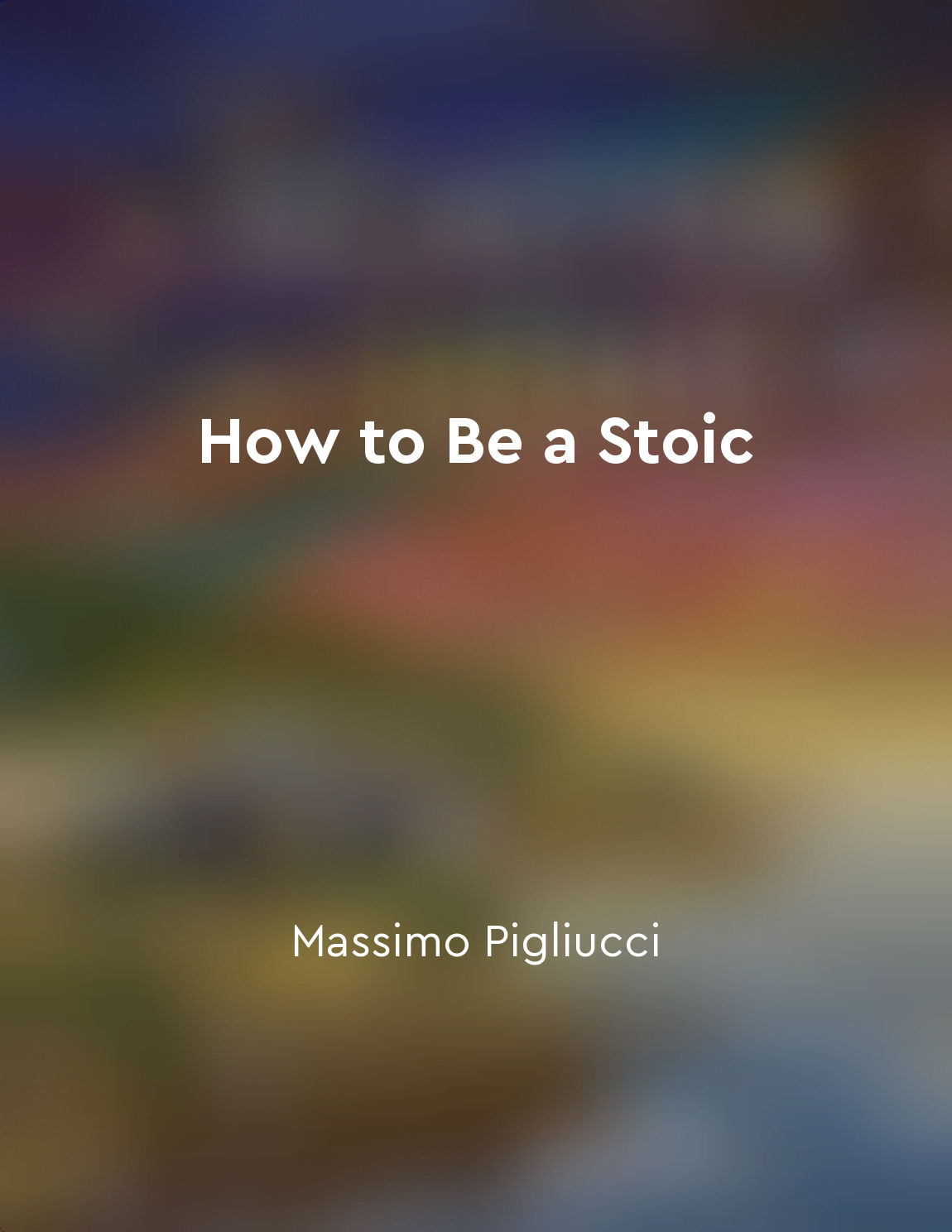The importance of cultivating inner peace through Stoic practices from "summary" of Stoicism and the Art of Happiness by Donald Robertson
The Stoics believed that the key to a happy and fulfilling life lies in cultivating inner peace, which can be achieved through the practice of their philosophical principles. By focusing on what is within our control and accepting what is beyond it, we can free ourselves from unnecessary worries and anxieties. This inner tranquility, according to the Stoics, is the foundation of true happiness. Stoic practices such as negative visualization and premeditatio malorum can help us prepare for adversity and develop resilience in the face of challenges. By imagining the worst-case scenarios and mentally preparing ourselves to cope with them, we can reduce the impact of unexpected events on our well-being. This proactive approach enables us to maintain our inner peace even in the midst of chaos. ...Similar Posts
Stoicism and romanticism find common ground in their approach to emotion
Stoicism and romanticism, despite their seemingly divergent philosophies, share a surprising commonality in their perspectives ...

Stoicism teaches us to practice selfreflection and self-improvement
Stoicism emphasizes the importance of self-reflection and self-improvement as fundamental aspects of personal development. The ...
Stoicism provides guidance for dealing with difficult emotions
One of the central teachings of Stoicism is the idea that we have control over our own thoughts and reactions to external event...

Being content with what we have is a key Stoic virtue
The Stoics believed that one of the key virtues to cultivate in order to lead a good and fulfilling life is contentment. This v...

The Stoic life is one of simplicity and moderation
The Stoic life is marked by a commitment to simplicity and moderation. This commitment is central to the Stoic worldview, refle...
Stoics practice gratitude and appreciation for all things
The Stoics believe in practicing gratitude and appreciation for all things. This means acknowledging and being thankful for eve...
Stoicism encourages constant selfimprovement and learning
Stoicism places a strong emphasis on the idea of continuous self-improvement and learning. According to the Stoic philosophy, i...

The practice of Stoicism encourages individuals to cultivate a sense of inner strength and resilience
The philosophy of Stoicism, as outlined by George Muntau, emphasizes the importance of developing inner strength and resilience...
Use reason to guide your actions
The Stoics believed that reason is the most powerful tool we have at our disposal. By using reason to guide our actions, we can...

Practice resilience in the face of adversity
The Stoics believed that adversity is an inevitable part of life, and that the key to dealing with it effectively is to cultiva...
